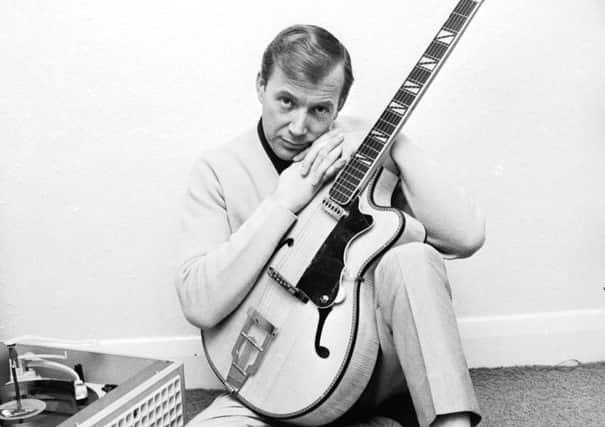Obituary: Val Doonican, singer and entertainer


With his broad toothy grin, friendly personality and delightful singing voice, Val Doonican wove his way into the hearts of the nation with his Saturday night specials on television. There were two other endearing factors in a Doonican show: the rocking chair and the colourful, but never gaudy, sweaters. With his rugged good looks he sang songs that appealed to many: his shows (on television and in the theatre) proved hugely popular and he became recognised as Britain’s answer to the likes of Bing Crosby, Andy Williams and Perry Como.
Michael Valentine Doonican was the youngest of eight children. He was always known as Val simply because Waterford had so many Michaels. The family were not well off but his childhood was happy. His father died of cancer when he was 14 and Doonican left school to help support the family.
Advertisement
Hide AdAdvertisement
Hide AdHe displayed a musical talent at local shows and sang on Waterford’s first ever television broadcast. This led to work singing in various Irish pubs and joining a band as a drummer. Doonican was spotted by a talent scout on Radio Eireann and in 1951 he joined a group called the Four Ramblers. They toured with Anthony Newley, who heard Doonican sing Paddy’s McGinty’s Goat at a party and Newley immediately suggested he went solo.
It was not easy to establish his solo career but Doonican did a radio spot on the old Light Programme (Radio 2). He was booked for the widely watched Sunday Night at the London Palladium and overnight Doonican was a star.
The BBC immediately offered him his own television show and he got the formula right from that first show. His voice suited an early Saturday evening audience: his relaxed crooner style singing mixing Irish folk with well-known songs. Doonican had the ability to introduce each number with an insouciance and wit that gave the impression that the programme was unrehearsed and live. The much loved Paddy Maginty’s Goat was heard with Delaney’s Donkey and O’Rafferty’s Motor Car.
Doonican was always generous in encouraging young acts – he gave an early chance to the comedian Dave Allan.
Overnight recording contracts flooded in: between 1964 and 1973 Doonican was rarely out of the UK charts and such singles as Walk Tall, The Special Years and What Would I Be sold widely and were included in all Doonican’s concerts.
Albums followed and with typical good humour he titled one Doonican Rocks – But Gently. It knocked the Beetles’ Sgt Pepper’s Lonely Hearts Club Band off the top of the albums chart in 1968.
His fame grew, as did his love of golf. In 1970 Eamonn Andrews arrived with the famous red book at the 18th green at South Herts Golf Club and whisked Doonican off for This Is Your Life.
Golf became a life-long passion and he played off a handicap of six. In 1970 he joined a team of UK entertainers brought together by another British golf lover, Sean Connery.
Advertisement
Hide AdAdvertisement
Hide AdHe captained the UK team who competed against Bing Crosby’s US team at Gleneagles. Doonican partnered Eric Sykes against George C Scott and Steve Forrest.
He often played with the Scottish comedian Ronnie Corbett when both were in summer seasons and at Turnberry in 1973 Doonican was down to play in a charity match against Seve Ballesteros and Greg Norman. A touch nervous, Doonican approached the first tee with some trepidation only to be told his original partner had fallen out and he’d now partner Bing Crosby – his lifelong hero. The nerves got worse.
As well as his Saturday night shows Doonican was a Christmas Eve fixture on television. They were watched by more than 19 million yet Doonican found them difficult viewing. “They became something of a national institution,” he explained. “I couldn’t bear to watch. It felt embarrassing seeing myself. We’d sit as a family enjoying ourselves but as soon as my show started, I’d nip off to another room.”
Doonican shunned the celebrity lifestyle and remained down to earth and devoted to his family and friends. That was reflected in his professional life. He was a reassuring and generous comedian and singer who never showed malice or betrayed confidences.
In an era of aggressive rock stars and ever outrageous pop groups Doonican was a beacon of musical sanity; not exactly challenging but hugely entertaining. He sang songs an audience wanted to hear.
“No one else,” he once said in that delightful Irish lilt, “would have had the nerve to sing them.” At that he burst into laughter and the famous smile beamed into the camera.
Indeed, Doonican’s songs were comfy, his sweaters were comfy and he was comfy.
He married the dancer Lynnette Rae in the 1960s. She and their two daughters survive him.